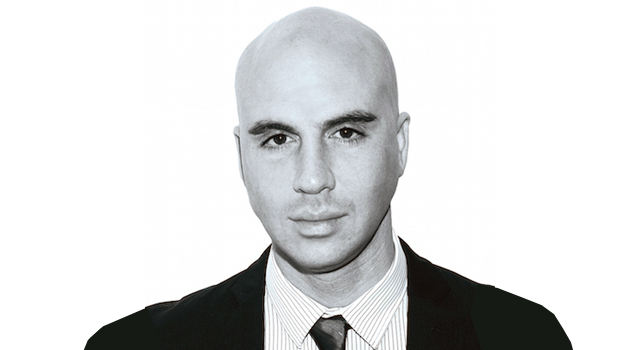
“To divert the attention of the Gazan people away from the corruption of the Hamas leadership, Hamas is seeking to rally its people around the notion of fighting a common enemy. And the common enemy they have designated is Israel.”
By Stacey Dresner
Benjamin Anthony is founder of Our Soldiers Speak, a non-profit NGO that provides briefings and analysis on the realities and challenges faced by the Israel Defense Forces in asymmetrical combat situations – defined by Wikipedia as “war between a standing, professional army and an insurgency or resistance movement,” such as terrorist groups. The organization has reached audiences on more than 400 campuses and at leading think tanks on several continents.
The lead speaker for Our Soldiers Speak, Anthony has lectured at every Ivy League college and has been keynote speaker for numerous Jewish Federations and other organizations. He also speaks on Capitol Hill and arranges briefings by senior IDF officers with members of Congress.
A native of the United Kingdom, Anthony made aliyah after graduating from the University of Manchester. He served in the IDF from 2005-2007. A Sergeant in the IDF reserves, he is a veteran of the Second Lebanon War, Operation Pillar of Defense and Operation Protective Edge. He continues to serve as a combat reservist.
Anthony will be the keynote speaker at the Western Massachusetts Israel Bonds annual dinner on Wednesday evening, June 6 at Chez Josef in Agawam, Mass.
Recently, he spoke with the Ledger about the work of Our Soldiers Speak, and the current situation on the Gaza border.
JEWISH LEDGER (JL): What prompted you to found Our Soldiers Speak?
BENJAMIN ANTHONY (BA): After the second Lebanon war, when I crossed back into Israel from Southern Lebanon, I was sent by my captain to sit for an interview with a reporter from the Courant of London. That reporter was not adversarial; he was not asking questions from a position of opposition to the state of Israel, but he had a genuine curiosity as to what was taking place in the second Lebanon war and he specifically wanted to hear it from somebody who was on the ground there. In the course of that interview I realized that beyond all of the political positions and diplomatic talking points, there was nobody who had been involved directly in the war who was able to articulate it in clear English, without political considerations to an audience that was ready to hear and to consider an Israeli perspective.
So, I established Our Soldiers Speak. After lecturing in synagogues for some time, I started to speak on university campuses in the U.S. in 2008. It became very clear to me that there was a problem of antisemitism on American campuses that back then most people were not aware of.
I was able to identify the problem, because what I had witnessed during my student career in the UK [United Kingdom] I was now seeing replicated in the United States. The difference is that in the UK, the attitude of the British government is impactful on the state of Israel but is not central to Israel’s security considerations. In the U.S., that is not the case. In the U.S., public opinion does have the potential to impact Israel and impact its national security and strategic considerations.
JL: What can be done do to combat the increasingly vocal – sometimes violent – anti-Israel activities on U.S. college campuses?
BA: A few things. First, people need to recognize the nature of the problem. A lot of people want to define this problem as being grounded in whether they agree with the policies of the current Israeli government – that is, the policies of Prime Minister Netanyahu – or not. That is not what this is about. This is not just anti-Israel sentiment on the campuses, this is antisemitic sentiment. And people need to be very clear-eyed about that.
Secondly, they must understand that the way to deal with this is not to engage in shallow public relations exercises or hasbara, which literally means “explanation.” Explaining Israel’s case on campus is not one that has been yielding great success, because it is often a very shallow series of talking points and it doesn’t address itself to the allegations that are being leveled by anti-Israel voices.
We believe in putting Israeli experts from various sectors in front of student communities in the U.S. who are studying in those areas. That means IDF lawyers go to speak at the top law schools; Israel diplomats go to speak at the international relations schools; Israeli journalists go to the media schools. These three sectors, among others – law, international relations and the media – are sectors from which influential power emanates.
The vast majority of your elected officials come from legal backgrounds – President Clinton is a lawyer, Mitt Romney is a lawyer, Ted Cruz is a lawyer, Hillary Clinton is a lawyer – the list is almost endless. So, if you want to meet your future legislators, they are probably enrolled in law school right now. So, sending an Israeli legal expert to a top law school in the states and discussing the subject of Israel leads to a very positive, substantive conversation that can really start to build genuine relationships and connections between Israel and the student community. And, you have to follow up with these students. We invite the very best of the student communities to tour Israel for 10 days. Within that tour they meet Israeli leaders and others, and experience the country directly. In so doing, we give Israel the opportunity to speak for itself, because we firmly believe that Israel is her own greatest ambassador. Then, we follow up after the trip. When we send our people to meet members of the U.S. Congress we bring students who ‘graduated’ from our tour to those meetings. For one of our graduates, we arrange a six-month internship in the Supreme Court in Israel with a sitting justice. We imbue the next generation of U.S. leaders with a clear view of what the State of Israel is and why Israel’s values are similar to their own values.
JL: Was the unrest on the Gaza border prompted by the opening of the American embassy in Jerusalem?
BA: I don’t think the opening of the embassy is the reason for it. What’s taking place on the Gazan border is a consequence of the fact that Hamas is under a tremendous amount of pressure from its own constituency to somehow improve the lot of the Gazan people over whom it is ruling with tremendous cruelty, deprivations and corruption. In order to divert the attention of the Gazan people away from the corruption of the Hamas leadership, Hamas is seeking to rally its own people around the notion of fighting a common enemy. And the common enemy they have designated as the target for that strategy is Israel… [They have] the singular goal of getting Hamas terrorists to penetrate the fence and reach into the community to kill, kidnap, maim and destroy the lives of the people who live in those communities. Israel has no choice other than to actively defend its borders against those threats. And that is precisely what the IDF is doing. I celebrate the fact that they are doing that. I do not criticize them for the actions that are undertaking and that is because I have stood in the shoes of the combat soldier. I understand the dilemmas they face.
Nobody should be distracted by this. There are real opportunities for a far brighter future, if the leadership of Gaza would choose to do so for the people of Gaza; because they could be the anchor for the establishment of an independent, vibrant, viable, thriving state full of Palestinian Arabs.
JL: In 2015, in an article in the Times of Israel, you dismissed the notion of a two-state solution in favor of what you called “The New State Solution.” Do you still advocate for that?
BA: Yes, the ‘two-state’ paradigm has failed, but that does not mean that we can give up the notion of bringing about peace. The New State Solution calls for the establishment of an independent, thriving, viable, sovereign state for the Palestinian Arabs living side by side with the state of Israel, and established in the Gaza Strip with contiguity on part of the shoreline of the Sinai Penninsula. This will give them economic viability, the opportunity to trade, industry, commerce, import, export, tourism and every Palestinan child could grow up in a legitimate, thriving homeland for their people.
JL: Sounds good – but is it possible?
BA: If there is one thing I have experienced in the IDF it is that everything is possible. The state of Israel has made historic peace agreements with enemies with whom we never would have imagined knowing peace. Jordan is one example; Egypt is another. If prior to President Sadat’s coming to Israel it was said that there would someday be a peace agreement with the Egyptians, the Israelis would have laughed. Yet it happened. It has proven to be very durable and sustainable and in the interest of both people. Therefore, yes, [peace with the Palestinians] is possible. And we will continue to focus our abilities on ending the Palestinian conflict.
For information on the Israel Bonds dinner contact Barbara Starr at Barbara.starr@israelbonds.com, (800) 916-1918.







 Southern New England Jewish Ledger
Southern New England Jewish Ledger












